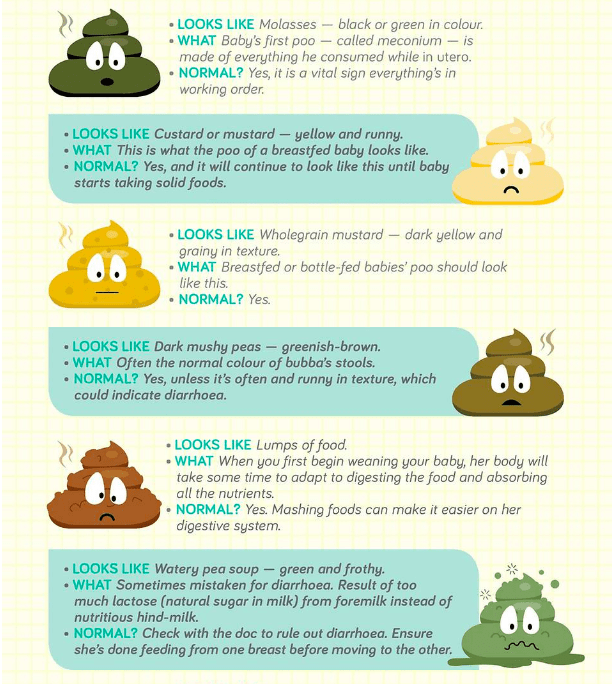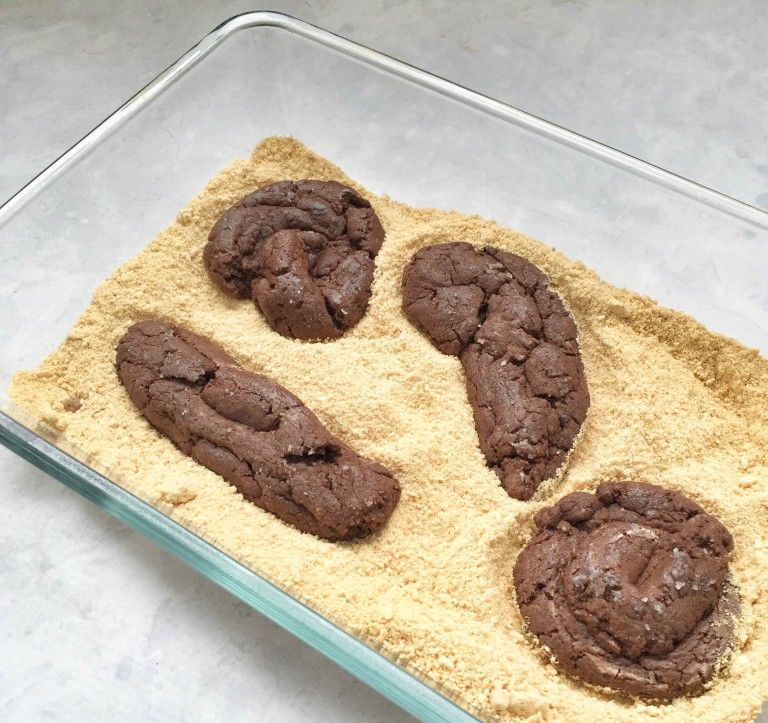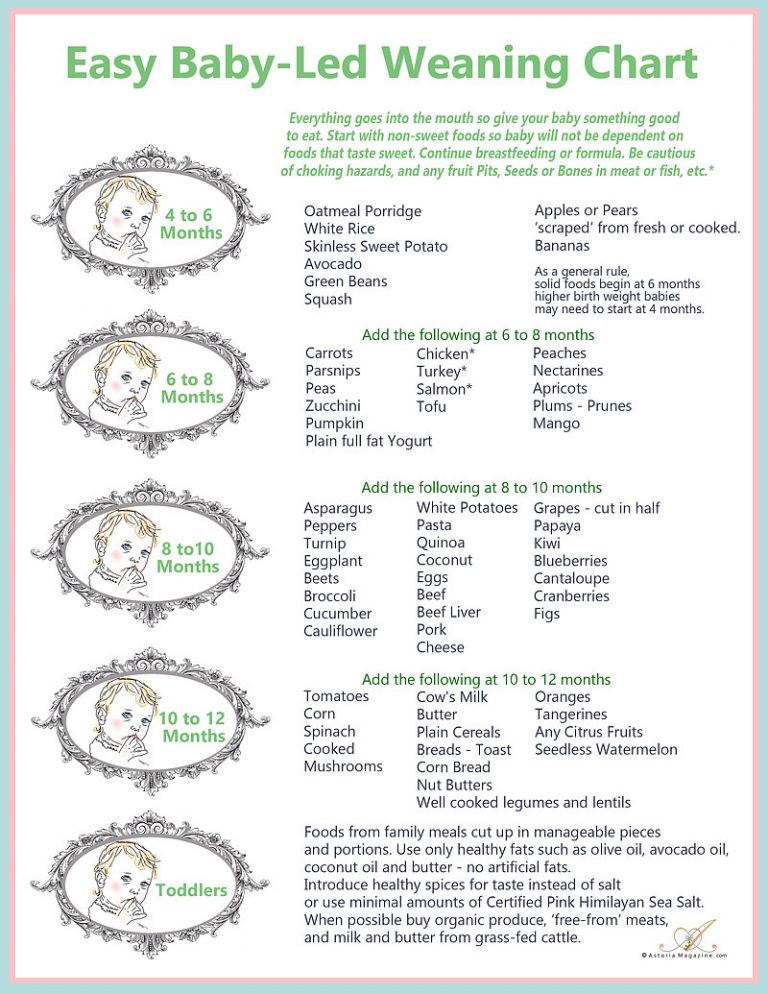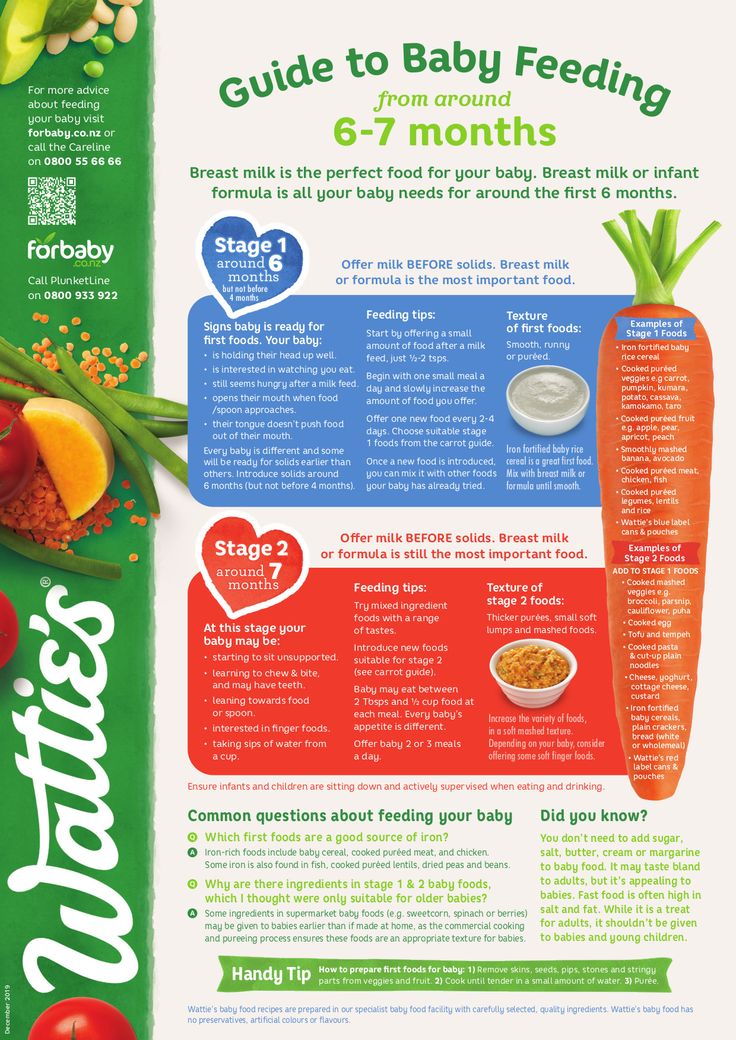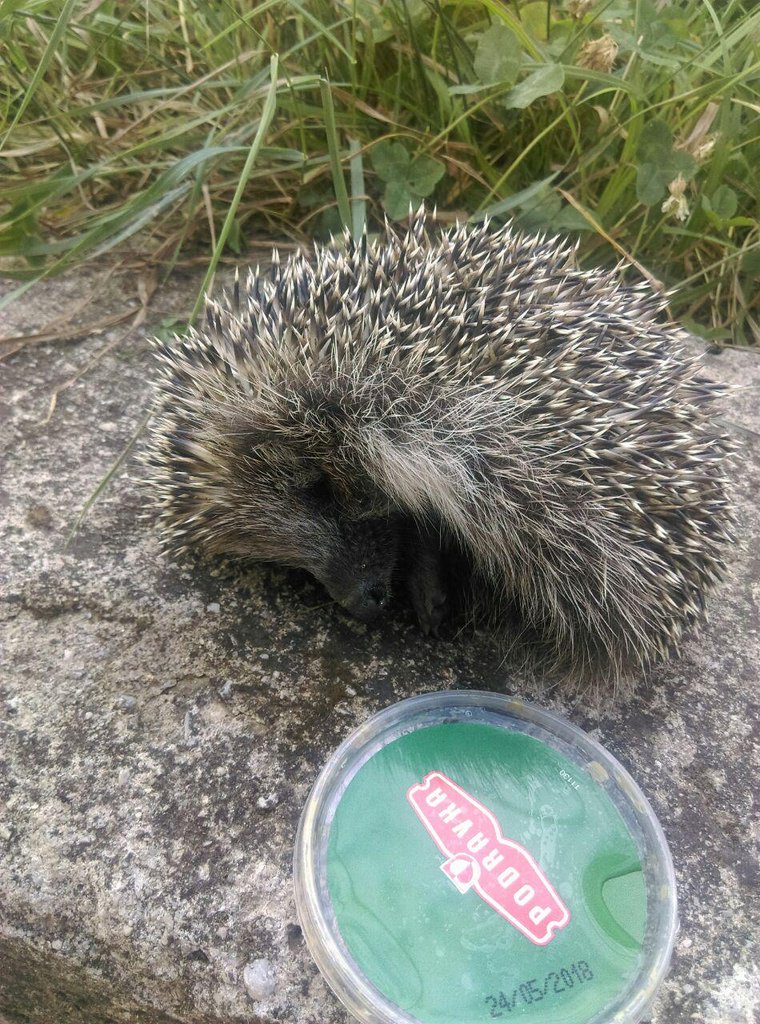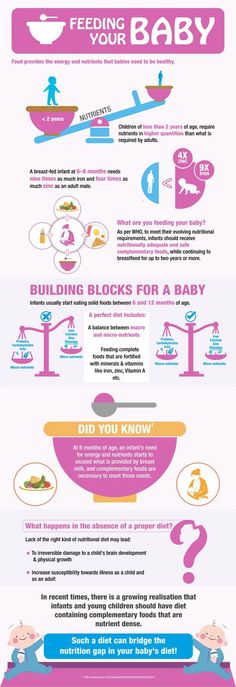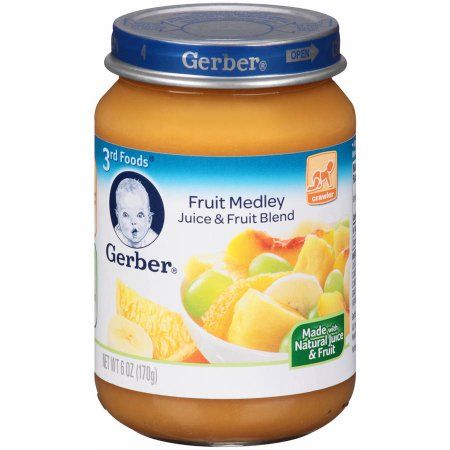Foods to make a baby poop
Are There Baby Foods that Help with Constipation?
While parenting brings many surprises, one of them is likely how much you’ll think about poop, or lack thereof, especially during that first year. But here you are worrying about your baby’s digestive tract and convinced that they’re constipated.
If you’ve recently introduced your baby to solid food, then your worries may be on target: solid foods can put a strain on your baby’s developing digestive tract and cause constipation. But there are things you can do to help!
Before you begin treating constipation you should determine if there is really an issue at all. So here’s the scoop on poop and how to tell if your worries are founded and your baby is constipated.
Breastfed babies
During the first few weeks, you’ll find yourself changing diapers with alarming regularity. Figure in every feed or so.
But don’t despair, because by the time your baby reaches 6 weeks old, they may have a bowel movement only once or twice a day. On the other hand, they may have one only every 7–10 days. (Yep, the frequency really can vary that much.)
The poop is yellow, soft, runny and sometimes lumpy and the smell isn’t unpleasant.
Formula-fed babies
A newborn, formula-fed baby typically poops up to five times a day. At about 6 to 8 weeks, this may decrease to around once a day.
Formula-fed babies have poop that is a camel to brown color with a thicker consistency, more like paste. Most likely, the less-than-aromatic smell means you’ll hermetically seal soiled diapers before you toss them into the garbage.
Signs that your baby is constipated
You’ve noticed that your baby’s tummy isn’t following the schedule that you got used to. Could it be constipation? Here are the signs that could confirm your suspicions:
- You notice that they cry or fuss while they’re trying to have a hard bowel movement.
- The poop, when it does come, is like hard pellets.
- You notice streaks of red blood in the hard poop.
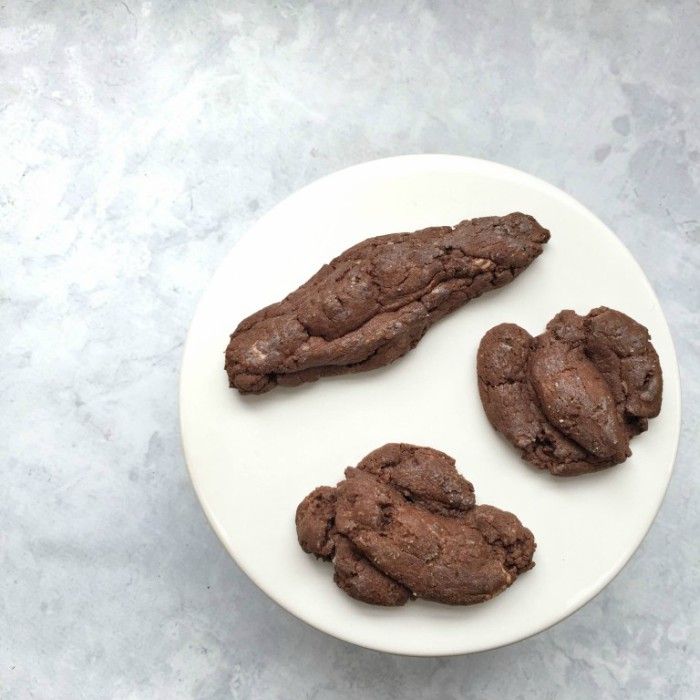
While it’s not easy for a baby on a liquid diet to become constipated, trouble can start when you start introducing your baby to solid foods at around 6 months. Here’s why:
New food types
Think of it as a learning curve: Your baby’s body is learning how to cope with a new kind of food to digest as they move away from their full liquid diet and you need to soften the learning curve. (Pardon the irresistible pun.)
Changes to fluid intake
Decreased fluids will make your baby’s poop harder and more difficult to push out. If they’ve started solids, they may need to up their fluid intake to offset the solid food. And if your baby is teething or feeling unwell, it can also lead to them taking in less fluid than usual.
Lack of fiber
Even though they’re just starting out, babies’ tummies work like ours. While initially the move to solids that have fiber (from breast milk or formula, which don’t) can cause temporary constipation, their tummies will adjust.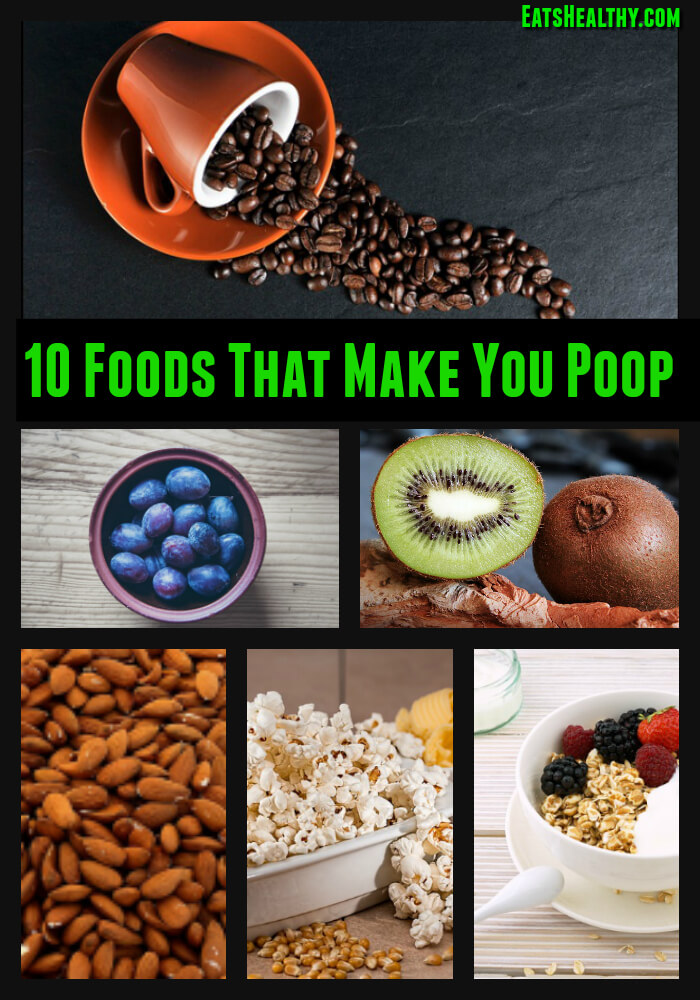
Make sure to monitor your baby’s fiber intake and pair it with plenty of hydration for a smooth ride the same way that you monitor yours.
OK, so you’ve confirmed that your baby is constipated. The next step is helping to alleviate the strain on their developing digestive system.
Remember that you can keep offering these foods as your baby develops into a toddler and beyond. In fact, there is little research or evidence to support specific foods (including high fiber ones) in treating or preventing constipation in infants. Most of these recommendations are based on evidence for older adults and children.
Keep in mind that good practice when introducing solids is to introduce foods as single ingredients. That way, if your baby is allergic to certain foods, you’ll be able to more easily trace the source.
If your little one hasn’t tried these foods before, don’t rush the process. Test out one at a time and then introduce combinations once you’re confident they’re well tolerated.
- Back to basics. Give your baby’s digestive tract a break by feeding them mashed avocado or sweet potato purée. These are easy to digest and may give your baby the kick start they need.
- B vegetables. Think broccoli, Brussels sprouts, and beans. Purée these for a meal filled with fiber.
- P fruits. Your grandmother was right — bring on the prunes for quick work. A purée that includes a mix of prunes plus pears, plums, or peaches should work magic. Try subbing the prunes with dates for a change.
- Bring on the fiber. If your baby is over 8 months, you can offer them whole grains like oatmeal, fiber-rich cereals, whole wheat pasta, and brown rice.
- Water intake. Until 6 months an exclusively breastfed or formula-fed baby doesn’t need to drink water. Above this age, you can introduce small amounts of water.
Plums and pears with cinnamon
Cut 2 or 3 pears and plums into small pieces.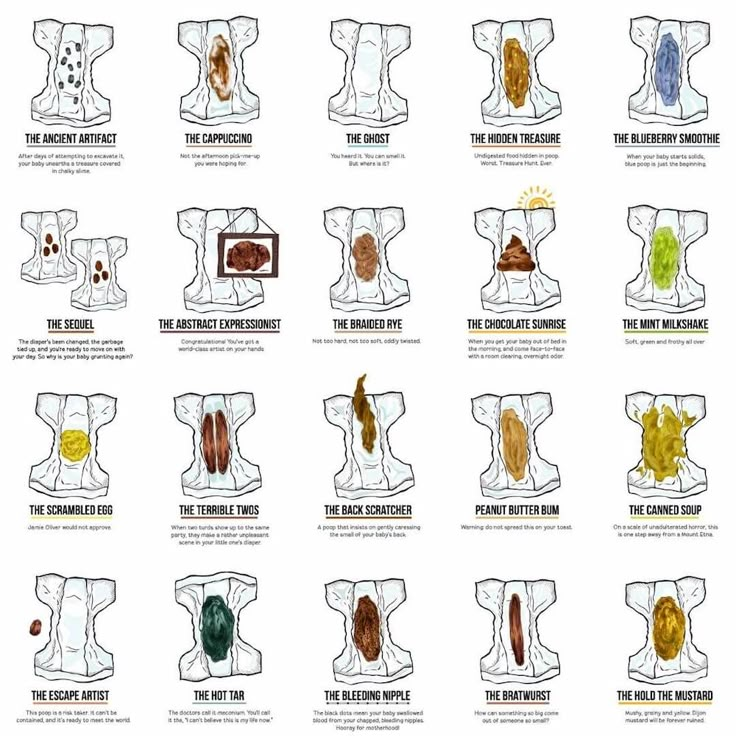 Place in a saucepan with a small amount of water and simmer until soft. Add in a sprinkle of cinnamon. Blend thoroughly.
Place in a saucepan with a small amount of water and simmer until soft. Add in a sprinkle of cinnamon. Blend thoroughly.
Sweet potato with apple and peach
Cut half a sweet potato, one apple, and half a peach into small pieces. Place in steamer basket and cook until tender. Blend until smooth.
Spinach and apple purée
Chop two apples into small chunks and cook in saucepan with about 1/2 cup of water. When they’re tender, add about 1 cup of spinach and cook another 2 to 3 minutes. Purée until smooth. Can be seasoned with cinnamon and ginger.
Some sources suggest prune, pear, and apple juices help to increase the water content in poop and can ease constipation.
However, the American Academy of Pediatrics recommends steering clear of fruit juice for children younger than 1 year old. You can stick with these fruits as purées for similar effects.
What is it about prune juice? The high levels of sorbitol and phenolic substances in prune juice and dried plums act as a laxative and diuretic properties.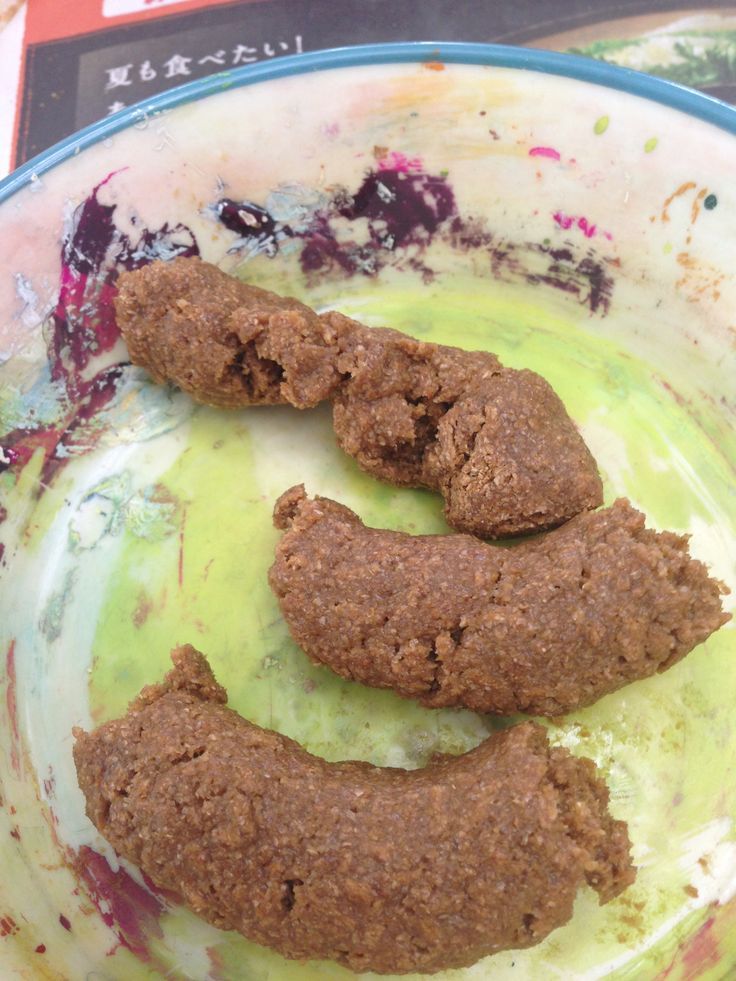 So if your child is over 1 year old, you can use small amounts of prune juice to encourage their system to run.
So if your child is over 1 year old, you can use small amounts of prune juice to encourage their system to run.
Some studies show that constipation may affect as much as 30 percent of children. If your child is part of the unlucky statistic, here are some foods that you may want to give them smaller amounts of until it passes:
- bananas
- dairy products such as cheese and yogurt
- low fiber foods like white rice, white bread, and white pasta
If you’re like most parents, you’ll be up for whatever you can try to help your baby get comfortable fast. Here are a few tricks that you can use to ease your baby’s constipation:
- Warm baths. These can relax those abdominal muscles and get them working.
- Exercise. Lay your baby on their back and push their legs alternately as if they’re cycling a bike. Alternatively, hold their knees and feet together and push their feet towards their belly.
- Massage.
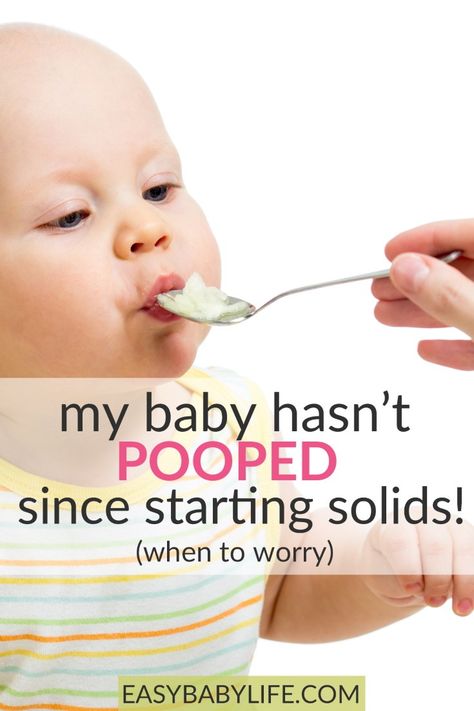 Use your fingertip to draw clockwise circles on your baby’s stomach.
Use your fingertip to draw clockwise circles on your baby’s stomach.
If you see that despite your home remedies, your baby still is having hard stools or hasn’t pooped after 2 or 3 days from their last hard stool, then contact your pediatrician. Especially if you consistently notice blood in their poop or your baby is extremely irritable and appears to be in pain.
While dealing with your baby’s toilet issues may seem a tad unsavory, you’ll soon be so used to it, that you’ll find yourself sharing your insights over coffee with other parents. And don’t be shy about sharing the yummy food combinations you discover to keep things moving.
The Best Foods to Help Baby Poop (And a Few That Make It Worse)
Relieving your constipated baby can be as simple as feeding her the right thing. Load up on these foods to help baby poop (and avoid ones that worsen the problem).
1 / 11
SMarina/Shutterstock
Relieves Constipation: Prunes
No surprises here; prunes are one of the best high-fiber foods for a baby who’s having tummy troubles. If your little one is just starting solid foods, try cooking and mashing some prunes to feed her. You could also chop cooked prunes into small, bite-sized pieces—or use one of our other creative techniques for introducing new baby foods.
If your little one is just starting solid foods, try cooking and mashing some prunes to feed her. You could also chop cooked prunes into small, bite-sized pieces—or use one of our other creative techniques for introducing new baby foods.
2 / 11
margouillat photo/Shutterstock
Relieves Constipation: Sweet potatoes
Sweet potatoes are delicious just about any way you prepare them, and they are also magic for a baby who needs to poop. They’re high in insoluble fiber, which will help your baby go right away. Try making your own baby food by cooking and mashing a sweet potato or roast fries in the oven for fun finger food.
This is how you know when to start feeding babies solid foods.
3 / 11
Mia Stern/Shutterstock
Relieves Constipation: Apples
An apple a day can keep constipation away! Apples (especially with the skin on) are high in fiber and can help pull water into your baby’s colon.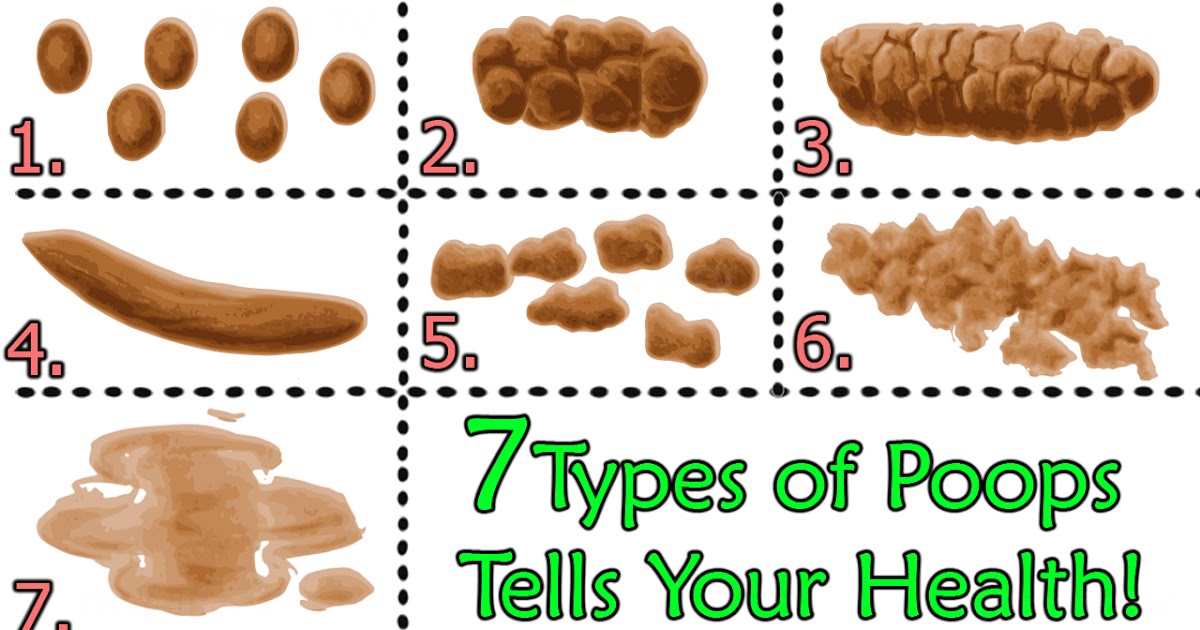 This keeps baby’s poop soft and easy to pass. Try offering small pieces of cooked apple or pour some apple juice into a sippy cup to help get things back on track. Apples are a great stage 1 baby food. Learn more about what types of food to start feeding baby once they’re ready to go beyond formula or breastmilk.
This keeps baby’s poop soft and easy to pass. Try offering small pieces of cooked apple or pour some apple juice into a sippy cup to help get things back on track. Apples are a great stage 1 baby food. Learn more about what types of food to start feeding baby once they’re ready to go beyond formula or breastmilk.
4 / 11
mama_mia/Shutterstock
Relieves Constipation: Broccoli
If your baby hasn’t tried broccoli yet, there’s no time like the present! Broccoli is a vitamin powerhouse and is high in fiber. Try blending up cooked broccoli in a food processor or offering small, bite-sized pieces of soft, cooked broccoli. (Consider one of our recommended baby food makers.) If your baby is eating a variety of foods, try adding small pieces of broccoli to brown rice or scrambled eggs.
When he’s a little older, your kid will love these tasty broccoli side dishes.
5 / 11
nelea33/Shutterstock
Relieves Constipation: Pears
There is nothing more delicious than a ripe, juicy pear.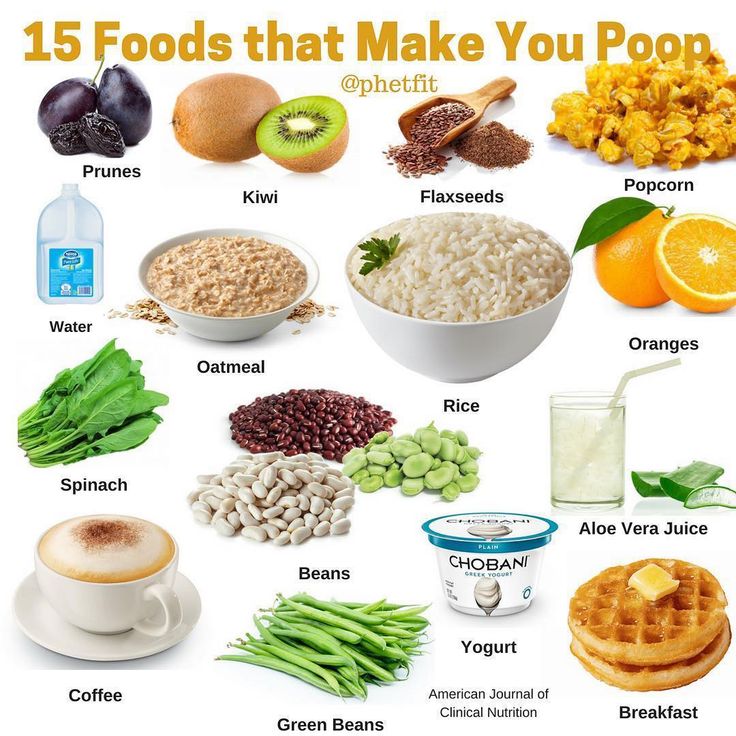 Treat your baby to this seasonal treat to help relieve and even prevent constipation. Pears are one of the first foods babies can try and are high in fiber. They can be cooked, but are soft enough to be offered raw. Your baby can safely gum small pieces of ripe pear without teeth.
Treat your baby to this seasonal treat to help relieve and even prevent constipation. Pears are one of the first foods babies can try and are high in fiber. They can be cooked, but are soft enough to be offered raw. Your baby can safely gum small pieces of ripe pear without teeth.
6 / 11
Sea Wave/Shutterstock
Relieves Constipation: Peas
If your baby is just starting solid foods, peas are usually one of the first options. This is good news if your baby needs help in the pooping department. Peas contain both soluble and insoluble fiber to help keep your baby’s poop soft and moving along. This makes it easier and quicker to pass without painful straining.
7 / 11
nesavinov/Shutterstock
Relieves Constipation: Spinach
We usually save the fresh spinach for our own salads, but babies should be invited to the greens party, too.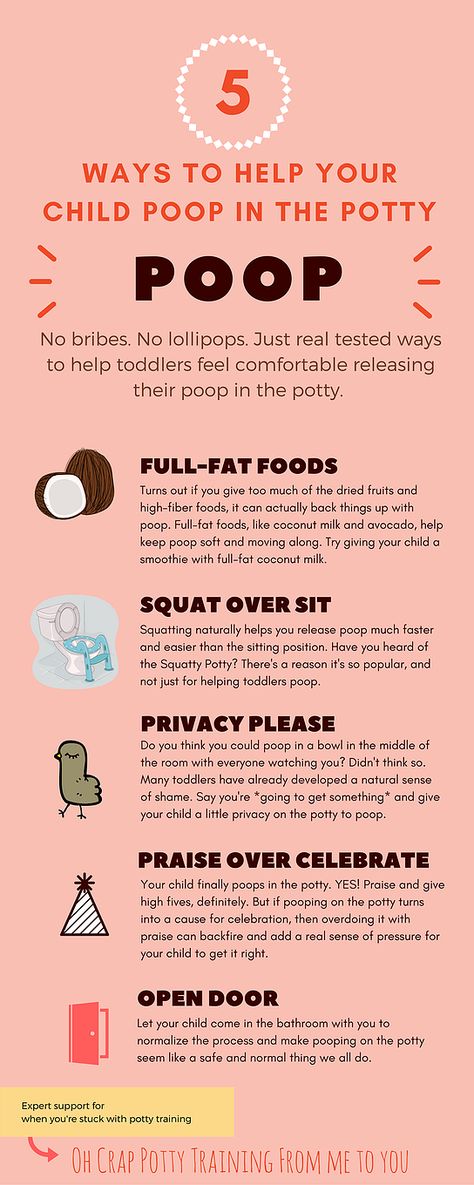 Spinach is loaded with fiber and vitamins that help make your baby’s poop easier to pass. Try blending up some fresh spinach in a fruit smoothie for both of you!
Spinach is loaded with fiber and vitamins that help make your baby’s poop easier to pass. Try blending up some fresh spinach in a fruit smoothie for both of you!
8 / 11
Brent Hofacker/Shutterstock
Causes Constipation: Cheese
Dairy products like small cubes of cheese or lightly flavored yogurt are easy foods for babies learning to eat solids. While safe and convenient, cheese is a low-fiber snack and can lead to constipation. Try cutting back on the dairy products for a few days and see if your baby improves.
You may think these foods are dairy-free, but they’re not!
9 / 11
Paulo Vilela/Shutterstock
Causes Constipation: Bananas
Bananas are a great first finger food for babies (and a yummy way to cut calories when baking). Unfortunately, they can also slow down your baby’s digestion, and thus slow down their pooping.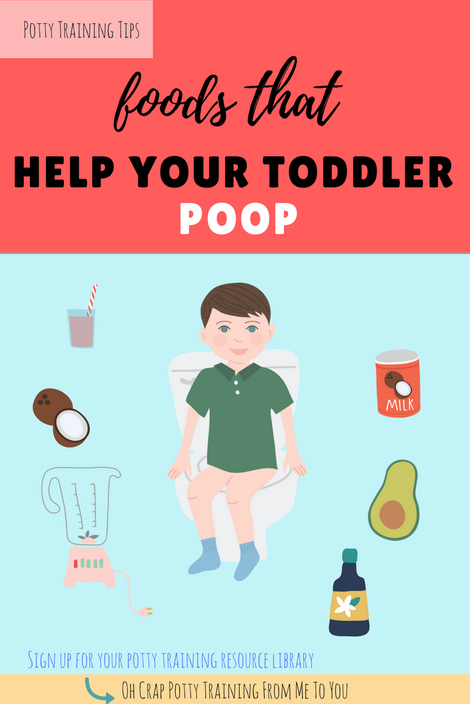 Take a brief break from bananas and use this opportunity to give some new fruits a try.
Take a brief break from bananas and use this opportunity to give some new fruits a try.
10 / 11
images72/Shutterstock
Causes Constipation: Cereal
Whether your child is just starting out with rice cereal or has graduated to carrying a bag of Cheerios with her wherever she goes, babies and toddlers cannot get enough of this favorite first food. Cereal can lead to more formed poop, which could slow down the number of poopy diapers each day. Try cutting back on the amount of cereal and incorporating more fresh fruits and veggies.
Use up those Cheerios in one of these genius recipes.
11 / 11
Igor Dutina/Shutterstock
Causes Constipation: Processed foods
Processed foods like cookies, crackers and white bread are common snacks for growing babies and toddlers, but too much can quickly lead to constipation.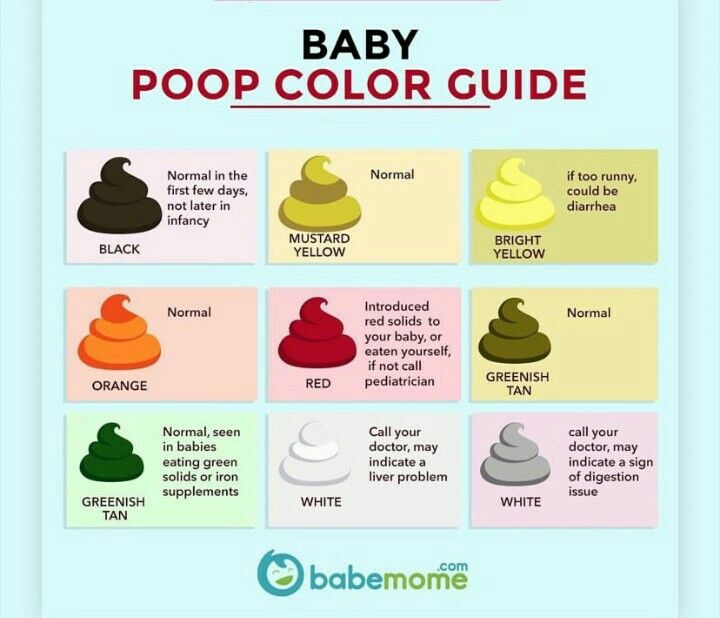 While you don’t have to cut these foods out entirely, try to limit them if your baby is having tummy troubles. Or, try swapping out white flour for whole wheat. For example, brown rice is a tasty alternative to low-fiber white rice.
While you don’t have to cut these foods out entirely, try to limit them if your baby is having tummy troubles. Or, try swapping out white flour for whole wheat. For example, brown rice is a tasty alternative to low-fiber white rice.
Originally Published: May 20, 2019
Carrie Madormo, RN
Now a freelance health and food writer, Carrie worked as a nurse for over a decade. When she isn't hunched over her laptop with a baby in hand, you will find her cooking her grandmother’s recipes, lacing up her running shoes or sipping coffee in the bathroom to hide from her three young children.
Mother's nutrition in case of constipation in a child
Co-author, editor and medical expert - Volosov Dmitry Dmitrievich.
Views: 283 340
Last update date: 24.11.2022 G.
Average Reading time: 8 minutes
Content:
- Classification of constipation in newborn and pectorals
- Causes of constipation in infants
- Importance of maternal nutrition in constipation in the infant
- Recommended products
- Products not recommended
- Maternal and child feeding rules to avoid constipation
- Feeding mother's menu for several days
Breast milk allows the baby to receive all the nutrients necessary for its growth and full development, and saves the mother from worrying about the correct selection of milk formulas, the temperature of the prepared baby food, etc.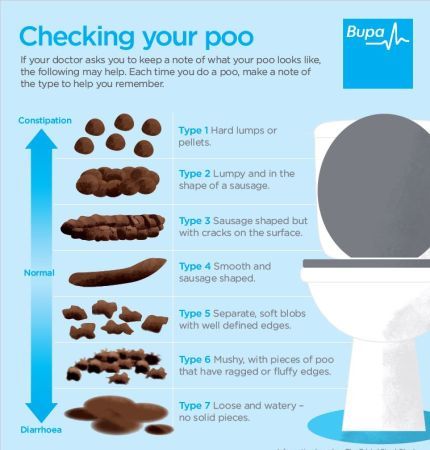 But there is a nuance in breastfeeding: the quality of the baby’s digestion directly depends on maternal diet. Therefore, quite often women turn to the doctor with the question of what to eat for the mother if the child has constipation, and how to normalize the stool of the newborn by correcting the diet of the mother.
But there is a nuance in breastfeeding: the quality of the baby’s digestion directly depends on maternal diet. Therefore, quite often women turn to the doctor with the question of what to eat for the mother if the child has constipation, and how to normalize the stool of the newborn by correcting the diet of the mother.
Classification of constipation in newborns and infants
Delayed stool in children can be acute or chronic. In the first case, it occurs once or is observed periodically, but with large intervals between episodes. In a chronic condition, this problem is relevant for a long period: the symptoms of constipation are observed constantly for several weeks or months.
In addition to classification by flow, constipation is divided into atonic and spastic. In the first case, the peristalsis is sluggish and weak, and the excreted feces are dense and voluminous. With spastic constipation, excessive peristalsis is observed in one of the sections of the intestine, which leads to a temporary "blockage" of feces and its difficult movement.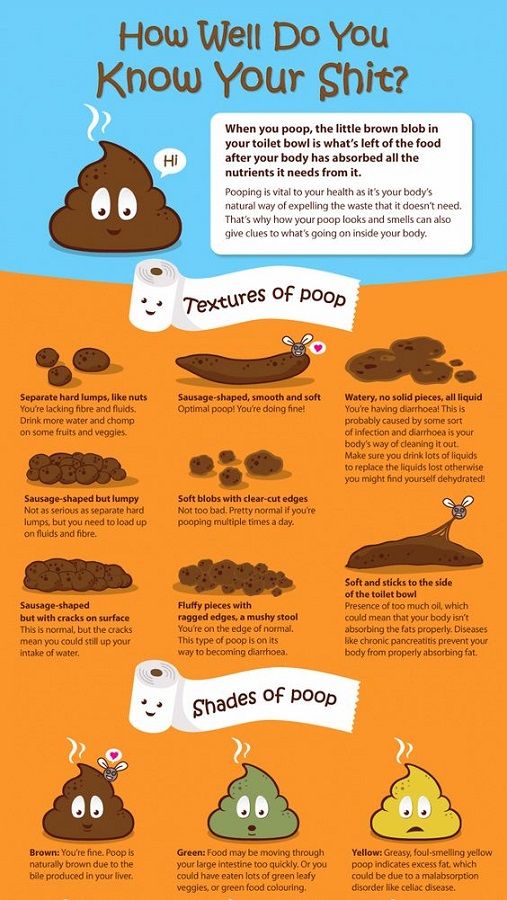 Feces with spastic constipation are heterogeneous, divided into small, dry and hard lumps.
Feces with spastic constipation are heterogeneous, divided into small, dry and hard lumps.
Back to content
Causes of constipation in infants
The most common causes of constipation in infants are:
- Improper nutrition of the mother. Maternal nutrition for constipation in a breastfed infant should be considered first. It is the violations of the diet in the mother that often lead to a delay in the stool in the child. The diet of a nursing mother with constipation in a baby often includes foods that have a fixing property.
- Features of the nervous system of the newborn. A kind of immaturity of the mechanisms responsible for innervation (that is, the supply of organs and tissues with nerves, ensuring their connection with the central nervous system) of the intestine can cause constipation due to an insufficient response of receptors to irritation by fecal masses.
- Maternal medication. A number of drugs necessary for the treatment of various diseases and conditions in a nursing mother give side effects in the form of a decrease in intestinal tone, slowing down peristalsis, etc.
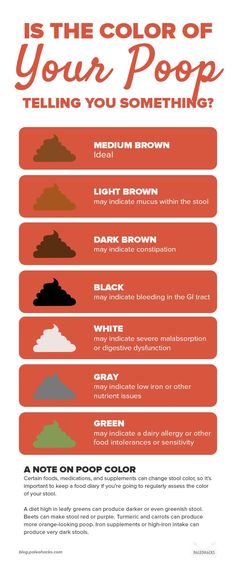 Therefore, when prescribing drug therapy, a woman should inform the doctor that she is breastfeeding.
Therefore, when prescribing drug therapy, a woman should inform the doctor that she is breastfeeding.
Back to Contents
Importance of Maternal Nutrition in Constipated Infants
Nursing Nutrition in Constipated Infants is much more important than it might seem at first glance. So, the lack of liquid in the diet leads to an increase in the fat content of milk, which can cause a delay in stool in a child. Consumption of a large amount of sweets and baked goods can change the chemical composition of milk. It also negatively affects the functions of the intestines in the baby. And the lack of plant products in the menu - vegetables and fruits, vegetable oils, etc. - reduces the amount of vitamins and minerals in breast milk, which can provoke not only constipation, but also other medical problems.
Back to content
Recommended foods
What to eat for constipated nursing mothers, you can choose from the list of recommended foods:
- Cereals .
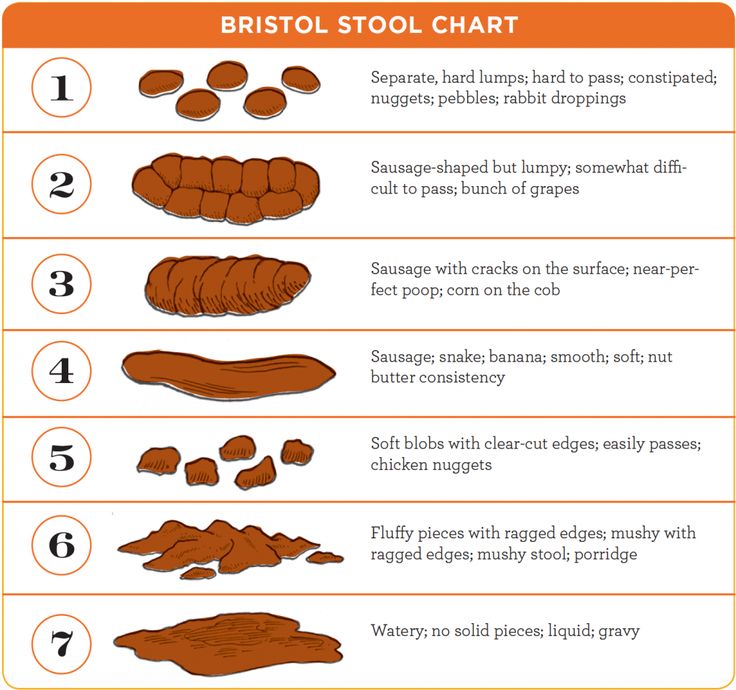 Wheat, oatmeal, corn, buckwheat porridge, whole grain bread, wholemeal or bran bread.
Wheat, oatmeal, corn, buckwheat porridge, whole grain bread, wholemeal or bran bread. - Meat products. All varieties of lean meat boiled, baked or stewed, soups in weak broths.
- Vegetables . Table beets, pumpkin, zucchini, cucumbers, cabbage, potatoes, tomatoes in the form of salads from fresh or boiled vegetables, side dishes, independent dishes (soups, stews, casseroles, etc.).
- Dried fruits . Dried apricots and prunes are the best laxative foods, but they should be limited to 3-5 per day. per day, as if consumed in excess, they can cause diarrhea.
Back to Contents
Unrecommended Foods
A diet rich in laxatives and fiber is not the only requirement for a constipated infant diet. It is equally important to exclude from the maternal menu products that produce a fixing effect. These include rice, semolina, pasta, muffins, sweets, pears, pomegranates, strong brewed tea, coffee, cocoa, chocolate.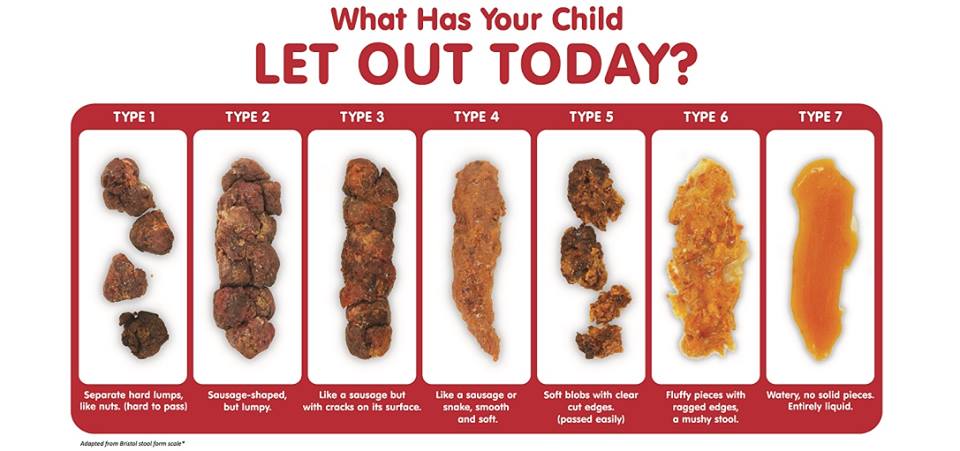
If constipation in a baby is accompanied by intestinal colic and increased gas formation, all legumes should also be excluded from the diet, and vegetables and fruits from the recommended list should be consumed only in processed form (soups, mashed potatoes, stews, etc.). Laxative products while breastfeeding should also be limited if the baby has unstable stools - alternating constipation and diarrhea.
Back to Contents
Maternal and Infant Feeding Rules to Avoid Constipation
Maternal nutrition in constipated infants is of great importance. But the diet and food hygiene mean no less: they help eliminate a number of factors that have an undesirable effect on the mother's body and, as a result, on the quality of breast milk.
Observe meal and feeding times . A clear regimen will make mom's digestion more efficient and, accordingly, improve the absorption of nutrients. And meals in small portions 4-5 times a day will ensure a uniform supply of nutrients to the milk. Feeding the baby should be based on the same principle. Teach him to eat at strictly allotted hours according to his age - a "disciplined" digestive system is much less prone to constipation.
Feeding the baby should be based on the same principle. Teach him to eat at strictly allotted hours according to his age - a "disciplined" digestive system is much less prone to constipation.
Maintain good feeding hygiene . In addition to traditional hygienic procedures before feeding (washing hands, wiping the nipple and areola), it is necessary to ensure that the child grasps the nipple correctly. With sucking movements, he should not swallow air - this can provoke disruption of the digestive tract. To ensure better hygiene and to make the mother feel more confident during breastfeeding, we recommend using JOHNSON’S ® 9 Breast Pads0134 Baby.
MICROLAX ® prepared a visual material especially for mothers of babies prone to constipation:
Up to content
Menu for a nursing mother for several days
If the baby has constipation, what should the mother eat and in what quantities? Here is the approximate composition of the diet for two days:
| 1st breakfast | Monday: 100 g of muesli filled with 100 g of yogurt or low-fat kefir, and weak tea with crispbread. Tuesday: 100 g porridge (oatmeal, buckwheat, barley), 150 g vegetable salad, dried fruit compote. |
| 2nd breakfast | Monday: apple, whole grain bread with a slice of cheese. Tuesday: Bran bread sandwich with honey, weak green tea. |
| Lunch | Monday: Serving of vegetable soup, 150 g of mashed potatoes with boiled beetroot salad and 100 g of boiled or baked fish, compote. Tuesday: cup of weak beef broth with whole grain toast, 150 g vegetable casserole, weak tea with 1 tsp. honey. |
| Snack | Monday: 2-3 pcs. dried apricots, 200 ml of kefir. Tuesday: 150 g finely grated fresh apple and carrot salad dressed with 1 tbsp. l. low fat sour cream. |
| Dinner | Monday: 200 g syrniki, prunes decoction. Tuesday: 150 g chicken breast, 100 g fresh or boiled vegetable salad, kefir - 200 ml. |
Further, your diet should be built similarly to this example, taking into account the recommended and undesirable products.
Back to Contents
The information in this article is for reference only and does not replace professional medical advice. For diagnosis and treatment, contact a qualified specialist.
Diet for constipation in children | Mamovediya
Constipation is a fairly common problem among children of all ages from infants to teenagers.
One of the main causes of constipation in a child is improper or poor nutrition. If the child has constipation, then in order to normalize the baby's stool, it is necessary to develop the habit of emptying the intestines at the same time, as well as to make the right diet.
When preparing a diet for a child who suffers from constipation, it is necessary to include in the diet foods that increase fecal mass and improve intestinal motility, foods that have an enveloping effect and help food slide well into the lower sections, foods rich in potassium, necessary for good the work of the intestinal muscles, as well as fermented milk products containing bifidobacteria, which contribute to the development of beneficial intestinal microflora.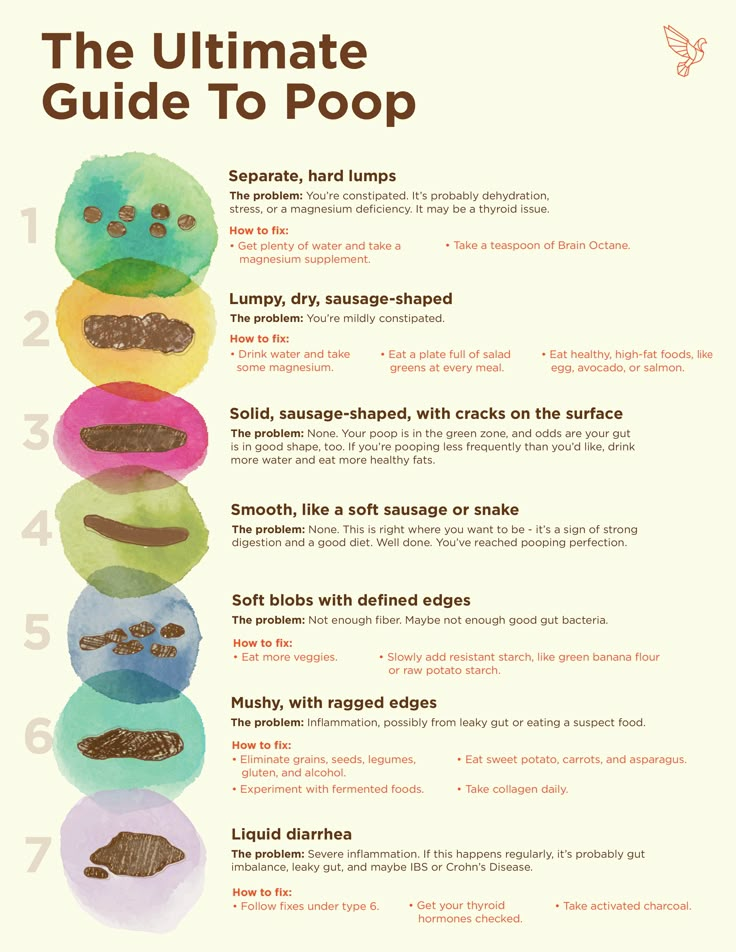
Parents need to carefully review their baby's diet and avoid foods that may contribute to constipation.
Foods that can make it difficult for a child to empty their bowels include dried blueberries, foods that have a viscous texture, rice and semolina, foods that are too hot, and drinks such as cocoa and strong tea.
Also constipation can be promoted by muffins, fresh bread and other products made from white wheat flour dough, including dumplings, dumplings, yeast pies.
Bread with bran, buckwheat, oatmeal, raw vegetables and fruits, dried fruits, especially prunes, dried apricots and apricots are very helpful in the fight against constipation.
From vegetables and fruits with constipation, it is necessary to use carrots, pumpkins, beets, zucchini, cauliflower, greens, baked apples.
Also, in case of constipation, it is necessary to include in the diet low-fat varieties of meat and fish, dairy products, sour cream, jelly and fruit and berry compotes.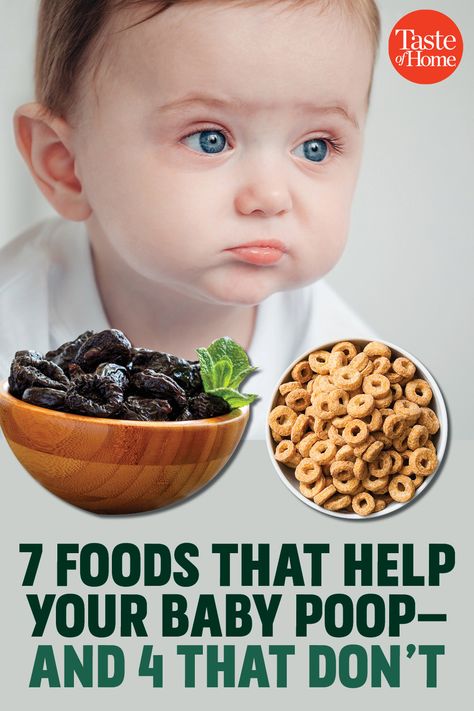
From dairy products, sour-milk products containing biocultures, one-day kefir, fermented baked milk and yogurt are best suited.
Since the diet for constipation in a child requires the restriction of sweets and starchy foods, instead of sweets, you can prepare a healthy and delicious dried fruit dessert for your child.
When compiling a diet for a child with constipation, it is necessary to try to increase the amount of ballast substances in the diet , which will swell in the intestines, and contribute to an increase in the volume of feces. These substances include fiber, pectin, seaweed, cellulose, bran.
If a child has bloating due to constipation, then in his diet it is necessary to exclude food that is rich in dietary fiber.
It is very important to avoid gas-producing foods while dieting . Such products include cabbage, beans, cucumbers, eggplants, pears, lingonberries, spinach, sorrel, apple and grape juice.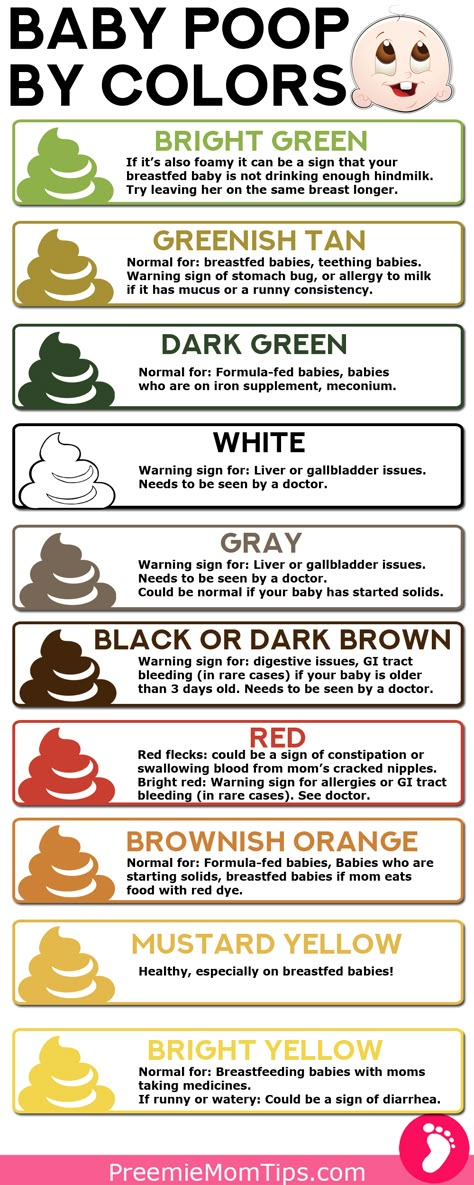
It is very important for a diet in case of constipation in a child to maintain an optimal drinking regimen and make sure your child is drinking enough fluids throughout the day. For drinking, mineral water without gas, juice with pulp, dried fruit compote, herbal tea are best suited.
If a child has a pronounced painful contraction of the intestines, then he should not be given coarse fiber for food. All fruits and vegetables should be given to the baby without the skin. Juices with pulp, mashed potatoes, sour-milk products, low-fat boiled meat and fish, honey, jams, jams can also help such a child very well.
For infants who are bottle-fed, it is necessary to choose a therapeutic mixture for constipation in a child .
If the baby is breastfed, then in this case, the nursing mother needs to consume a lot of fresh vegetables and fruits, as well as dairy products.
The introduction of complementary foods to a child with constipation is best to start with one-component vegetable puree and pumpkin, zucchini, carrots, beets are well suited for this.